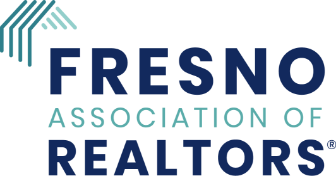Buyers + Sellers
The Mission Statement of the Fresno Association of REALTORS® is to promote the Professionalism, Integrity and Competence of REALTORS®.
The Fresno Association of REALTORS® is a Trade Association for REALTORS®. Only real estate licensees who are members of the ASSOCIATION OF REALTORS® are properly called REALTORS®. They proudly display the REALTOR “®” logo on the business card or other marketing and literature.
REALTORS® are different from non-member licensees in that they voluntarily subscribe to a strict Code of Ethics. If you believe that a REALTOR® has violated one or more Articles of the Code of Ethics, you can file an ethics complaint alleging a violation(s) through the local association of REALTORS® where the REALTOR® holds membership, or participates in a REALTOR® association-owned/operated MLS.
In addition, REALTORS® agree as a condition of membership to arbitrate contractual disputes and specific non-contractual disputes as provided for in Article 17 of the NAR Code of Ethics.
This link provides several resources to help you understand what filing and processing an ethics complaint and arbitration request entails, and the general process you can expect when filing an ethics complaint or arbitration request with the Fresno Association of REALTORS®.


What Does it Mean for Consumers?
How does the Code of Ethics affect everyday real estate practices? If a REALTOR® represents you, whether you are buying or selling a home, you can count on that REALTOR® to:
- Be honest with all parties in the transaction – not just with you, as his or her client, but also with the other real estate practitioner and his or her clients.REALTORS® For example, if REALTORS® represent a buyer with a spotty credit history, they can’t be dishonest with sellers about this fact. At the same time, REALTORS® can help their buyer clients collect and assemble information, such as credit reports and audited tax returns, to demonstrate that the buyer has addressed the problem and improved their situation.
- Put your interests ahead of his or her own, at all times.REALTORS®
A REALTOR® makes every effort to understand the housing needs of his or her client, thoroughly researches available inventory, and shares all relevant information with the buyer so that he or she can make an informed decision. This service is provided regardless of the compensation available. - Disclose all pertinent facts regarding the property and the transaction to both buyer and seller. REALTORS®
If a REALTOR® believes information provided by a seller is questionable, the REALTOR® is obligated to investigate. REALTORS® should recommend that buyers consult their own experts, such as home inspectors, to address concerns. For example, if a home seller asks his or her REALTOR® to conceal the fact that the roof leaks, the REALTOR® cannot comply; if the seller insists, the REALTOR® should end the business relationship with that seller. - Be truthful in all communications with the public.REALTORS®
When REALTORS® distribute newsletters, create Web sites, or place advertisements, they must be careful not to represent other real estate professionals’ work product as their own. If recently sold or listed properties in the community are publicized, it must be clear whether the REALTOR® was actually involved in the transaction, or whether that data came from the local multiple listing service or other source. This ensures that the public understands the REALTOR®’s experience and can make an informed decision when choosing real estate representation. Find a REALTOR®
Ethics Complaints, Arbitration Requests, and Related Information
REALTORS® are different from non-member licensees in that they voluntarily subscribe to a strict Code of Ethics. If you believe that a REALTOR® has violated one or more Articles of the Code of Ethics, you can file an ethics complaint alleging a violation(s) through the local association of REALTORS® where the REALTOR® holds membership, or participates in a REALTOR® association-owned/operated MLS. You may search for a member’s local affiliation here.
In addition, REALTORS® agree as a condition of membership to arbitrate contractual disputes and specific non-contractual disputes as provided for in Article 17 of the NAR Code of Ethics.
Below are several resources to help you understand what filing and processing an ethics complaint and arbitration request entails, and the general process you can expect when filing an ethics complaint or arbitration request with a local association of REALTORS®. Check with the local association of REALTORS® to ensure you have the proper forms required by that association.
Ethics
- Code of Ethics – View the current NAR Code of Ethics here.
- Before You File an Ethics Complaint – This brochure explains alternatives to consider before filing an ethics complaint, as well as what to expect after filing a complaint.
- Initiating an Ethics Hearing – Procedures for processing complaints alleging violations of an Association’s bylaws. See section 28 on page 18, Initiating a Disciplinary Hearing.
- Key Ethics Forms – View or download forms for initiating an ethics complaint.
- Sanctioning Guidelines – While NAR does not recommend specific discipline for certain offenses, it does outline key points to be considered with respect to discipline.
Arbitration
- Duty to Arbitrate – See Section 45 on page 32, Duty to Arbitrate Before C.A.R..
- Arbitratable Issues – From Appendices 2024.
- Key Arbitration Forms – View or download forms for filing an arbitration request.
- Factors Considered in Arbitration – From Appendices 2024.
- No Findings of Fact in Arbitration Awards – From Appendices 2024.
- Mediation as a Service of Member Boards – From Appendices 2024.
Statements of Professional Standards Policy
View the complete listing of Professional Standards Policy Statements.
Related Content
- Dispute Resolution Center – This program is designed to resolve disputes between buyers, sellers, and real estate brokers/salespeople not otherwise covered under Article 17 of NAR’s Code of Ethics and Standards of Practice.
- The Five E’s of Due Process – The right of a private organization to discipline members and to conduct dispute resolution is conditioned by law on ensuring due process to all parties as recognized by the five elements explained in this article.
- Hearing Panelists’ Roles, Preparation, and Etiquette – Outlines what is expected of hearing panelists in ethics and arbitration hearings.



